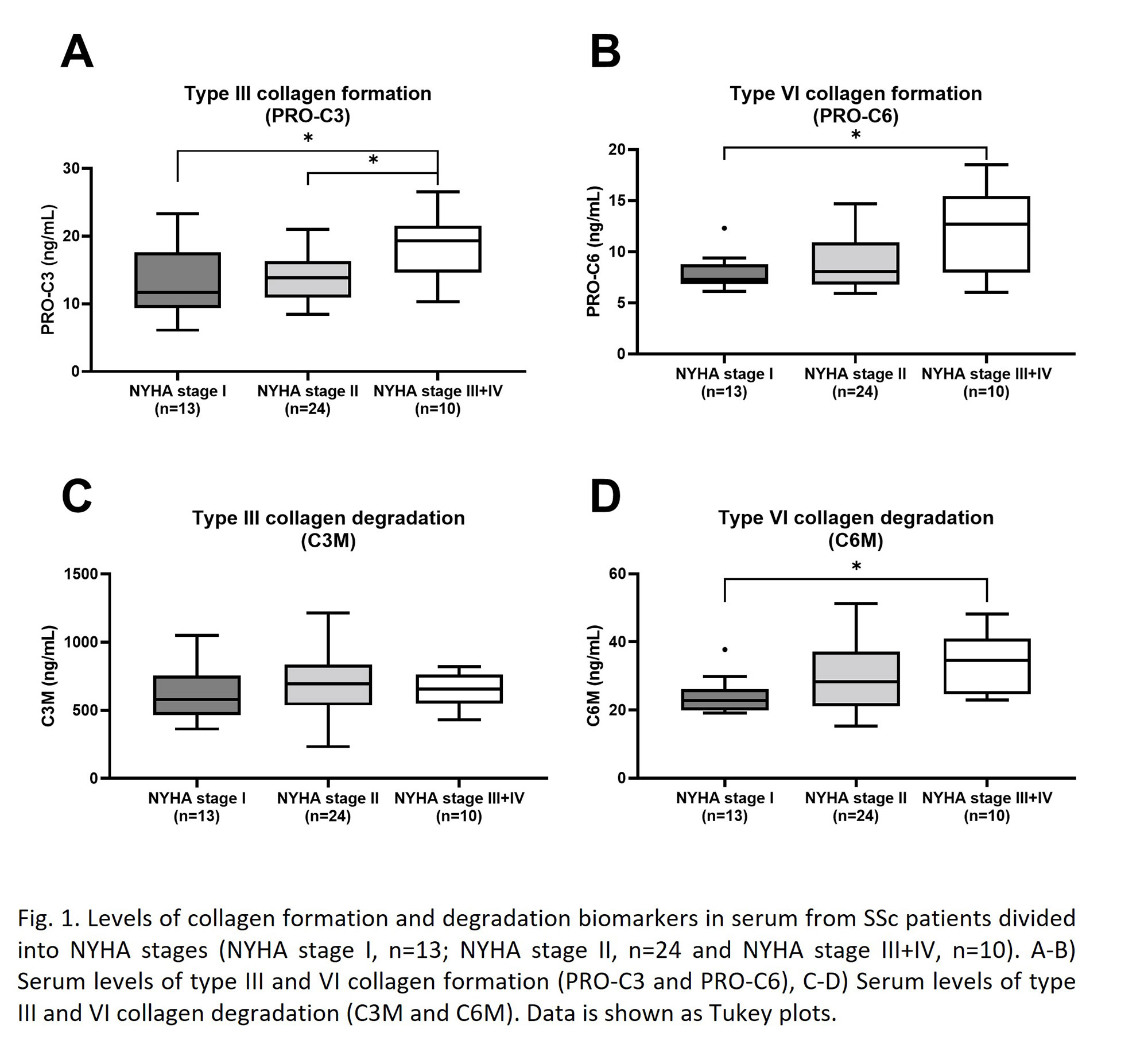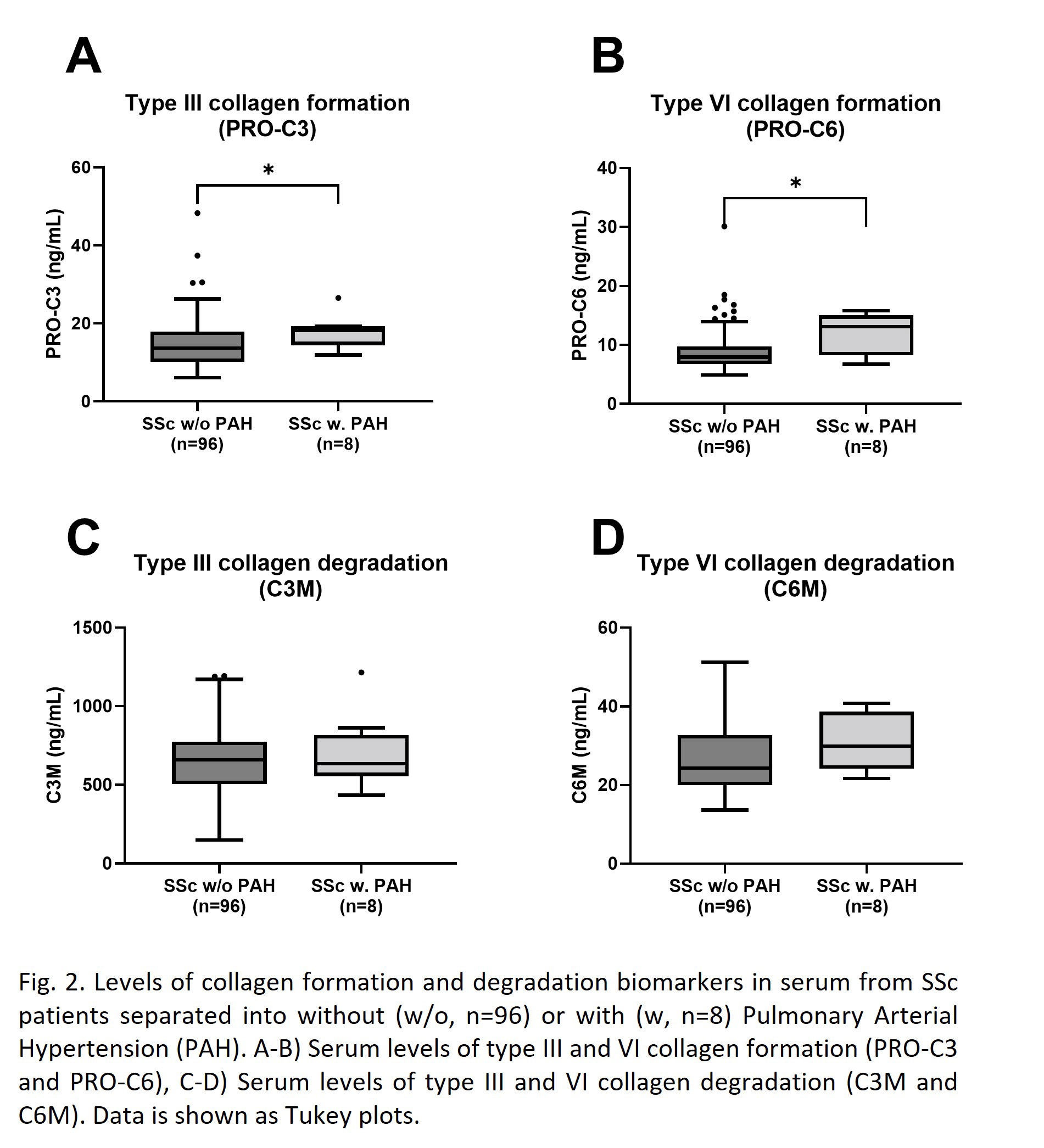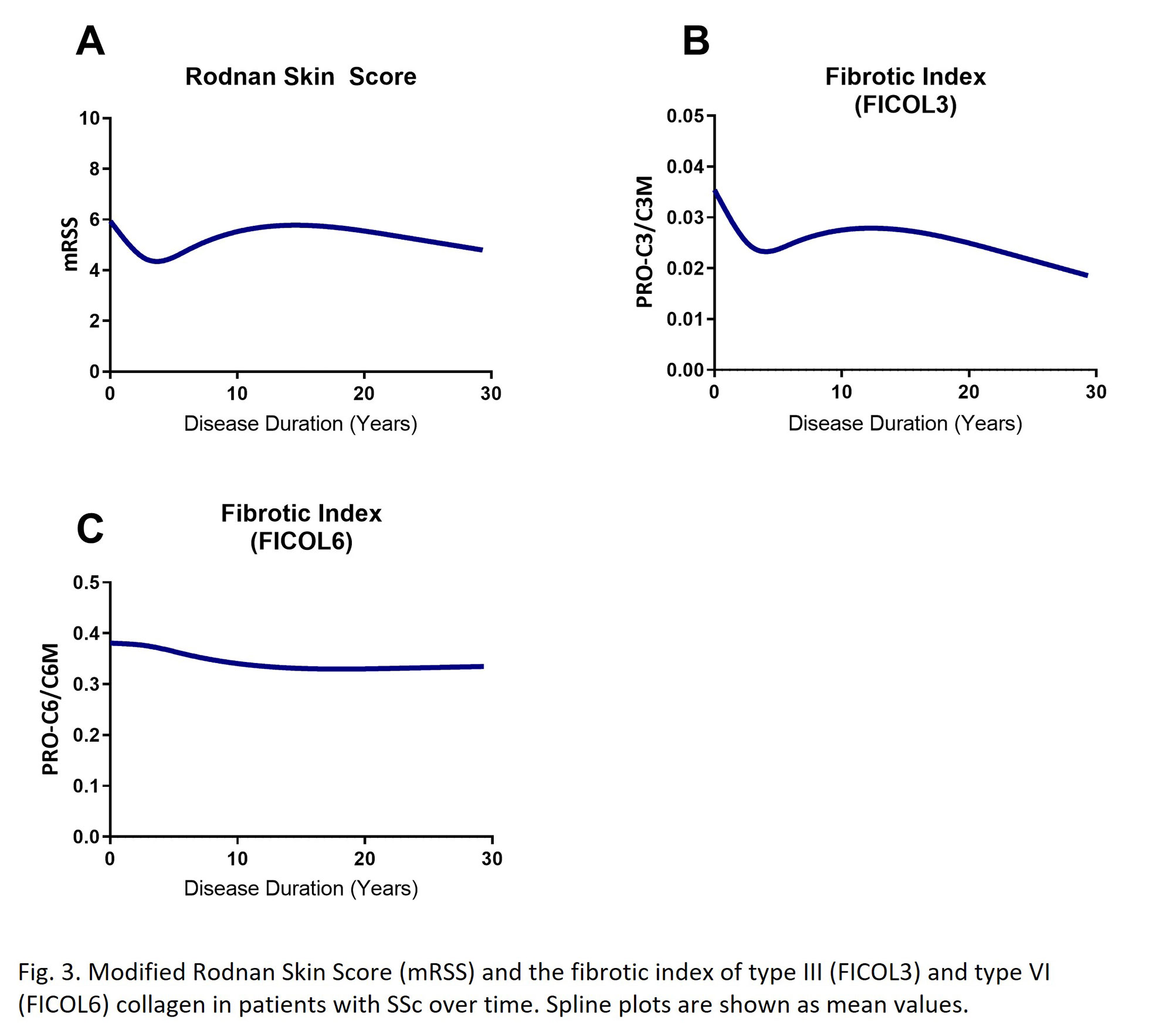Session Information
Date: Monday, November 14, 2022
Title: Systemic Sclerosis and Related Disorders – Clinical Poster III
Session Type: Poster Session D
Session Time: 1:00PM-3:00PM
Background/Purpose: Systemic sclerosis (SSc) is characterized by vasculopathy and fibrosis of the skin and internal organs. Cardiac involvement, pulmonary arterial hypertension (PAH), and interstitial lung disease (ILD) are associated with a poor prognosis. They can develop clinically silent and be difficult to detect. Novel tissue turnover blood markers hold the potential to detect the manifestations before clinical overt disease, identify patients at risk and monitor the disease course as well as improve our understanding of the pathophysiology in SSc. The purpose of this study, was to measure novel tissue turnover biomarkers in serum from patients with SSc and explore associations with skin-scores, ECG-abnormalities, PAH and ILD.
Methods: One-hundred and two patients fulfilling the 2013 ACR/EULAR criteria for SSc were included in the study (mean age 59, 77% female, disease duration 0.5-30 years). At study visit, participants completed a questionnaire concerning co-morbidities (confirmed by medical records review), current medication, family history of CV events, heart symptoms, and smoking habits. Systolic and diastolic blood pressures and a standard 12-lead electrocardiogram (ECG) were measured. Additionally, latest (within 3 months) pulmonary function test (FVC% and DLCO%) was noted. Biomarkers of type III and VI collagen formation (PRO-C3 and PRO-C6) and degradation (C3M and C6M) were measured in serum by competitive ELISAs. The fibrotic index was examined (formation/degradation), of both type III (FICOL3) and type VI (FICOL6) collagen. Differences between biomarker levels in SSc patients with or without PAH and ILD, together with abnormal heart rate (< 50 or >100 bpm (n=9)), PQ >220 ms (n=1), QT >450 ms (n=7) or QRS >120 ms (n=4) assessed by ECG were calculated by Mann-Whitney U test while differences in NYHA stages was examined by a Kruskal Wallis test. A spline plot was included to investigate the association between modified Rodnan Skin Score (mRSS) and the fibrotic indexes over the disease course.
Results: Patients with SSc presented a stepwise increase in the levels of PRO-C3, PRO-C6, and C6M (p=0.024, p=0.045, and p=0.021, respectively) with NYHA stages (Fig. 1), while no difference was found for C3M (p=0.64). A total of 8 patients were diagnosed with PAH, and they presented higher levels of PRO-C3 and PRO-C6 (p=0.041 and p=0.019, Fig. 2) compared to patients without PAH. There was no difference in the biomarker levels for 26 patients diagnosed with ILD for any of the biomarkers (p=0.13-0.89, respectively), and neither of the biomarkers was associated with abnormalities accessed by ECG. However, these were limited by low number of patients with ECG-abnormalities. Patients did not have the same disease duration, and the fibrotic index, FICOL3, appeared to follow the same trajectory as the mRSS (Fig. 3).
Conclusion: Patients with SSc presented an altered tissue turnover in later stages of NYHA and in presence of PAH. In addition, the fibrotic index, FICOL3, indicated to follow the mRSS over time. Our study indicates that they could serve as biomarkers of these manifestations and warrant further studies in cardiac disease in SSc.
To cite this abstract in AMA style:
Holm Nielsen S, Søndergaard Korsholm S, Diederichsen A, Karsdal M, Bonde Knudsen J, Bay-Jensen A, Diederichsen L, Tandrup Nielsen C. Novel Tissue Turnover Blood Markers Are Associated with Pulmonary Arterial Hypertension and NYHA Stages in Patients with Systemic Sclerosis [abstract]. Arthritis Rheumatol. 2022; 74 (suppl 9). https://acrabstracts.org/abstract/novel-tissue-turnover-blood-markers-are-associated-with-pulmonary-arterial-hypertension-and-nyha-stages-in-patients-with-systemic-sclerosis/. Accessed .« Back to ACR Convergence 2022
ACR Meeting Abstracts - https://acrabstracts.org/abstract/novel-tissue-turnover-blood-markers-are-associated-with-pulmonary-arterial-hypertension-and-nyha-stages-in-patients-with-systemic-sclerosis/



